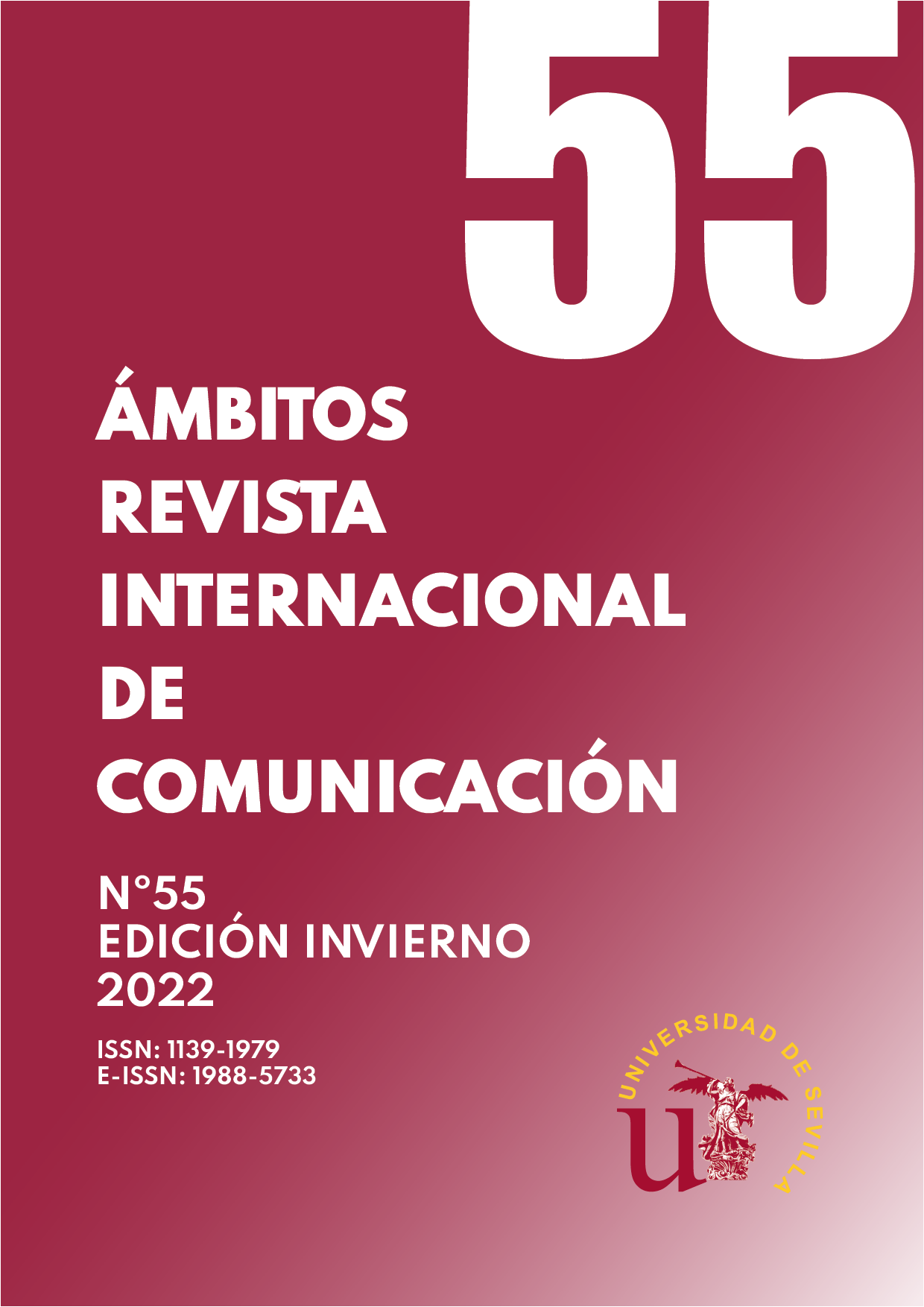"I Want to Be My Own Boss": The Critique of Autonomy in Sorry We Missed You by Ken Loach
DOI:
https://doi.org/10.12795/Ambitos.2022.i55.07Keywords:
Ken Loach, false autonomous, critical theory, autonomy, lackAbstract
Ken Loach's cinema is famous for its incisive proposal that seeks to extract the contradictions of the economic and social system in its stories. In this sense, the recent Sorry We Missed You contributes to a novel reflection that brings us closer to the critique of neoliberal totalitarianism presented by the authors of the now famous Dialectic of the Enlightenment. Specifically, we will refer to an illustrated thesis par excellence, which is the one that proposes the demand for individual autonomy as an ethical mandate that is presumably emancipatory. Although this ethical mandate is impossible to obey, individuals are forced to observe it with respect and admiration for ideological demands that only contribute to digging deeper and deeper the trench of their own doom.
Downloads
References
Adorno, T. y Horkheimer, M. (2007). Dialéctica de la Ilustración. Trotta.
Asensi, M. (2011). Crítica y sabotaje. Anthropos.
Bardey, D. (2015, 4 de agosto). ¿Qué significa la “Uberización” de la economía? ¿Cuáles son sus consecuencias para Colombia? Foco económico. Un blog latinoamericano de economía y política. https://bit.ly/33ClHgr
Bueno, A. (2019, 2 de noviembre). Sorry We Missed You: La decisión de Ricky. Cinemagavia. Cine y series. https://bit.ly/2Eb1sxN
De Aguilera, M., Sosa, A. y De Aguilera, R. (2018). Comunicación, discursos, algoritmos, poder. Ámbitos. Revista Internacional de Comunicación, 40, edición de primavera, 2018, 161-167. http://dx.doi.org/10.12795/Ambitos.2018.i40.20
FundéuRAE (s.f.). Uberización y uberizar, términos válidos. Consultado el 14 de diciembre de 2021. https://bit.ly/32CiXAi
Gobierno de España, Ministerio de Educación y Formación Profesional (s.f.). Sentido de la iniciativa y espíritu emprendedor. Ley de educación. Consultado el 14 de diciembre de 2021 https://n9.cl/0pfd1.
Gracia Gómez, A. A. (2020). Subjetividad y perspectivismo en la prensa y la literatura: análisis de La condena de Franz Kafka. Estudios de teoría literaria – Revista digital. Artes, letras y humanidades, 9 (18), 153-164. https://n9.cl/gpx2l
Gutmann, T. (2019). Dignidad y autonomía. Reflexiones sobre la tradición kantiana. Estudios de Filosofía, 59, 233-254. http://dx.doi.org/10.1515/9783110222906.3.
Hobbes, T. (2002). Leviatán I. Alianza-RBA.
Infoautónomos (2020). ¿Qué es un falso autónomo? Infoautónomos. Nacer, crecer, triunfar. https://bit.ly/3kpnXyo
Kant, I. (1996). Fundamentación de la metafísica de las costumbres. Ariel.
Loach, K. (director). (2007). It’s a Free World [película]. Sixteen Films.
Loach, K. (director). (2016). I, Daniel Blake [película]. Why Not Productions y Wild Bunch.
Loach, K. (director). (2019). Sorry We Missed You [película]. Versión distribuida en español por Vertigo Média, coproducida por Sixteen Films - BBC Films - BFI Film Fund - Les Films Du Fleuve - Why Not Productions - Wild Bunch.
Mayor, F. (1984). Orwell, 1984. Cuenta y razón, 17, mayo-junio, 23-35.
Orwell, G. (2008). Nineteen Eighty-Four (1984). Penguin: England.
Roy, E. (director). (2016). How to make a Ken Loach film [película]. Sixteen Film – Upian – Arte.. https://bit.ly/2RDmV5o.
Soengas Pérez, X. (2018). Los medios de comunicación en la sociedad actual: crisis, negocio y politización. Ámbitos. Revista Internacional de Comunicación, 40, edición de primavera, 2018, 59-61. http://dx.doi.org/10.12795/Ambitos.2018.i40.12
Szpilbarg, D. y Saferstein, E. (2014). El concepto industria cultural como problema: una mirada desde Adorno, Hockheimer y Benjamin. Calle14: revista de investigación en el campo del arte, 9 (14), 56-66. https://bit.ly/3mwuAkk
Weinstein, M. (2018). Pensar el totalitarismo neoliberal: seis tesis sobre totalitarismo. Constelaciones. Revista de teoría crítica, 10, 74-115. https://bit.ly/3c9Wy0u
Wikipedia (s.f.). Conflicto entre Uber y los taxistas. Wikipedia. La enciclopedia libre. Consultado el 14 de diciembre de 2021. https://bit.ly/3mpe7ye
Downloads
Published
How to Cite
Issue
Section
License
Copyright (c) 2022 Alfonso A. Gracia Gómez

This work is licensed under a Creative Commons Attribution-NonCommercial-ShareAlike 4.0 International License.
Ámbitos. Revista Internacional de Comunicación is an open access journal, which means that all content is freely available at no charge to the user or their institution. Users may read, download, copy, distribute, distribute, print, search or link to the full text of articles, or use them for any other lawful purpose, without seeking prior permission from the publisher or author. This definition of open access is in accordance with the Budapest Open Access Initiative (BOAI).

Unless otherwise noted, all content in the electronic edition is distributed under a "Creative Commons Attribution-NonCommercial-ShareAlike 4.0 International License". You can consult the informative version and legal text of the licence here. This should be expressly stated in this way where necessary.
In case of acceptance of the manuscript, the authors cede the rights of the work for its publication to Ámbitos. Revista Internacional de Comunicación under the Attribution-NonCommercial-ShareAlike 4.0 International license contract (CC BY-NC-SA 4.0). The authors retain copyright and third parties are authorised to copy, distribute and make use of the work, provided they comply with the terms and conditions set out in the licence
- Cite the authorship and the original source of publication (journal, publisher and URL of the work).
- Do not use them for commercial purposes.
- If you remix, transform or create from the material, you must release your contributions under the same license as the original.
More information can be found at https://creativecommons.org/licenses/by-nc-sa/4.0/deed.es


















